The Art Of Feeling Human Again: 8 Hidden Reasons You’re Always So Exhausted — And How To Fix Them
If you're tired no matter what you do, these overlooked factors may explain everything.
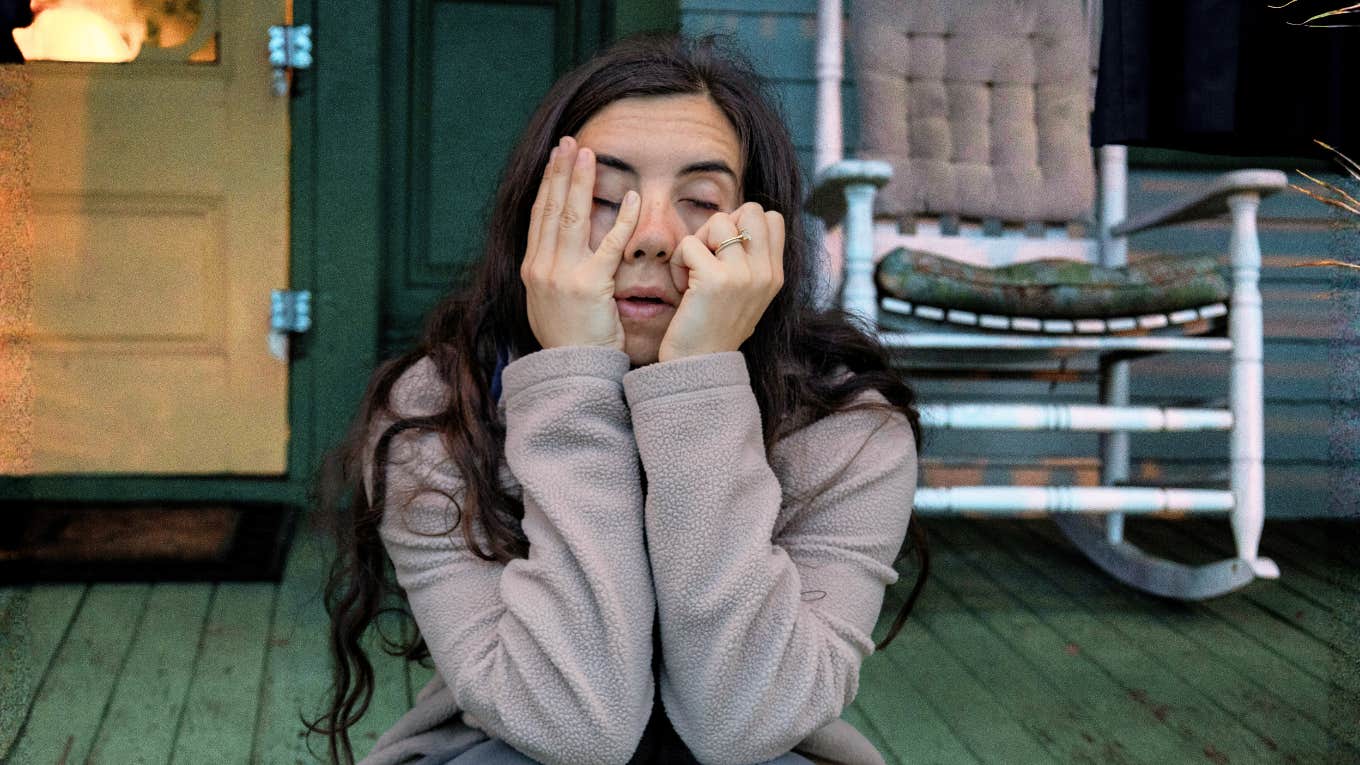 Mick Kirchman | Unsplash
Mick Kirchman | Unsplash Feeling tired is normal, but you shouldn’t feel tired all the time. In fact, you should feel rested and ready to tackle the day after a full night’s rest, but that doesn’t always occur. You’ll inevitably feel tired every so often. It’s a cruel fact of life that we sleep approximately one-third of our lives and live the other two-thirds of our lives waiting for the moment we can return to our cozy beds. Though we can’t be tethered to our beds, couches, or wherever else we sleep or nap forever. We need to break free sometimes.
If you’re constantly struggling to keep your eyes open during the day and know the fatigue that you’re experiencing is more than an occasional afternoon slump, then consider other causes of your tiredness than your once-in-a-while bad night’s sleep. Identifying what may be causing your fatigue is the first step in recovering from it.
Here are 8 hidden reasons you’re always so exhausted — and how to fix them:
1. You might have a sleeping disorder
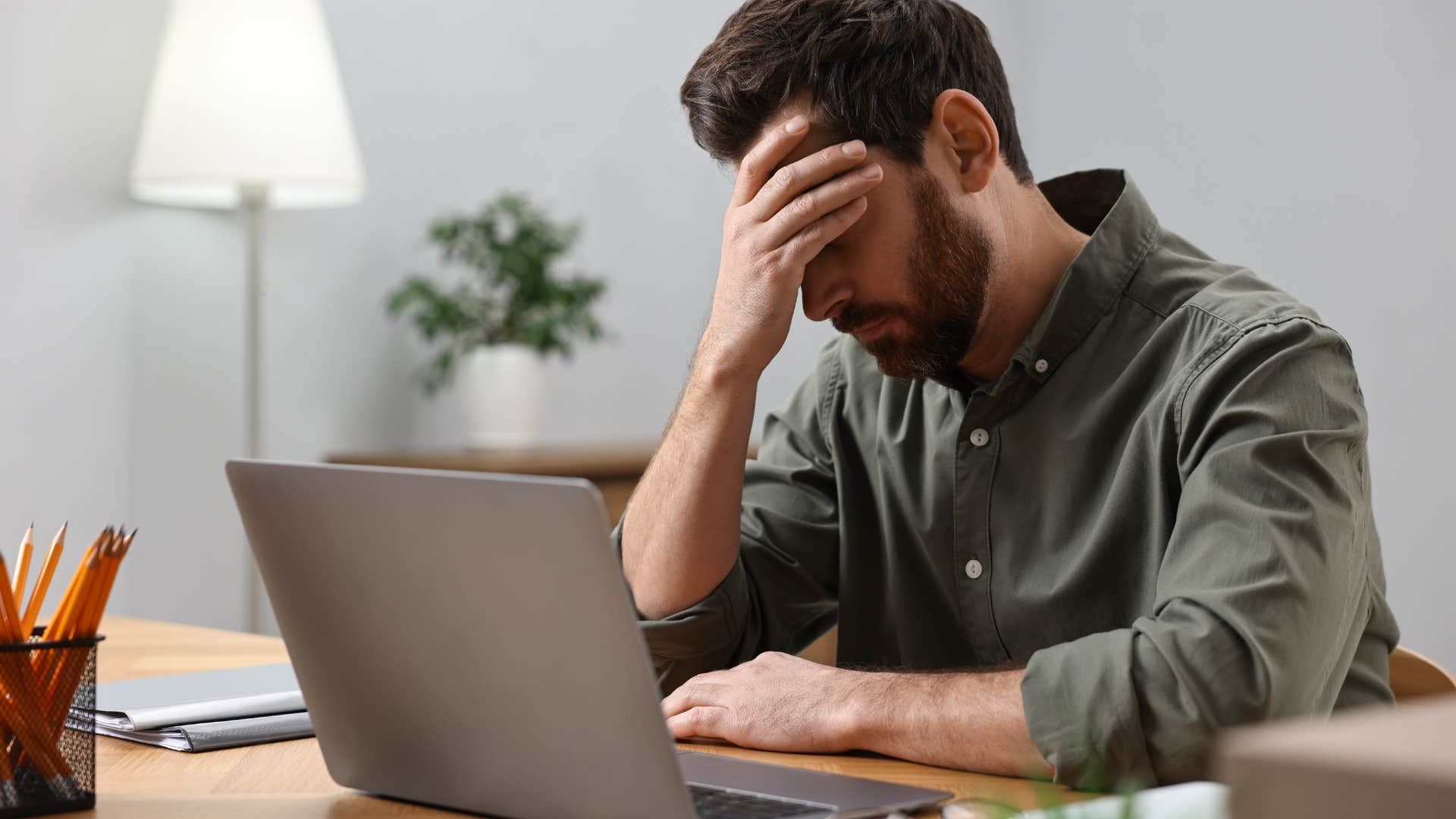 New Africa / Shutterstock
New Africa / Shutterstock
Many people have sleep disorders without even realizing it. The more well-known disorders, like sleep apnea and insomnia, are sometimes the hardest to diagnose because of the myriad of symptoms that accompany them.
However, any mental or physical disorder that disrupts your normal sleeping pattern, prevents you from falling or staying asleep, or causes you to sleep when you do not wish to do so is classified as a sleeping disorder and can greatly impact your ability to receive a good night’s rest.
Consult your doctor if you believe you have a sleep disorder. He or she may recommend you enroll in a sleep study to assess your sleeping habits or simply try traditional sleep remedies, such as taking melatonin to correct your sleeping disorder.
2. You might have allergies
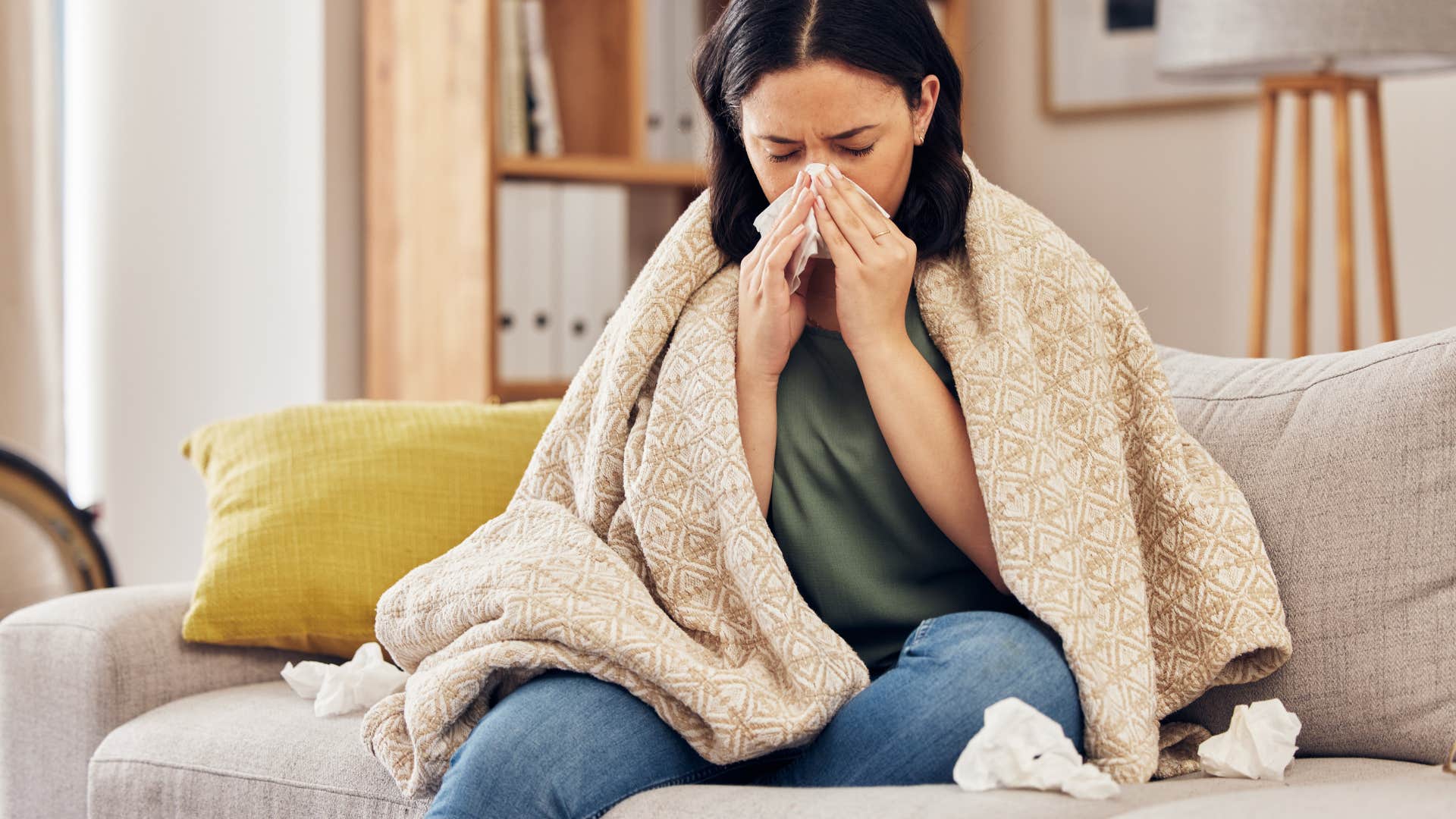 PeopleImages / Shutterstock
PeopleImages / Shutterstock
Allergies are one of the most common afflictions in the U.S., affecting all age groups, including children. Although it is so commonplace, many people do not know how their allergies may be affecting them. In fact, during a flare-up of allergy symptoms, you might feel stuffy, dizzy, and tired, depending on the type of allergies you have.
According to the Cleveland Clinic, this phenomenon is caused by inflammation and may be exaggerated as your body tries to fight off your allergy symptoms. Not only do you feel lethargic when your allergies are bad, but you also may have trouble concentrating and getting an adequate amount of sleep, which perpetuates the fatiguing effects of allergies. Visit an allergist to receive regular allergy treatments, such as immunotherapy and allergy shots, to alleviate some of your tiredness caused by pesky allergies.
3. Your unhealthy eating habits might be to blame
 Stock-Asso / Shutterstock
Stock-Asso / Shutterstock
Your diet and your energy levels are closely related, making the foods you eat just as important as the amount of sleep you get in terms of how tired you feel each day. Overeating, eating too little, or eating unhealthy foods regularly can all contribute to chronic fatigue.
With overeating, your digestive system has to work overtime to ensure the food is digested properly, whereas undereating results in your body not being able to metabolize enough calories (i.e., energy). Avoid skipping meals, snacking before bed, and eating more than three meals per day.
Additionally, you should eat fruits and vegetables along with your meals to make sure you get all the essential nutrients you require. A dietician may be able to help you devise a meal plan if you have special dietary restrictions or want extra advice.
4. You might be more stressed out than you realize
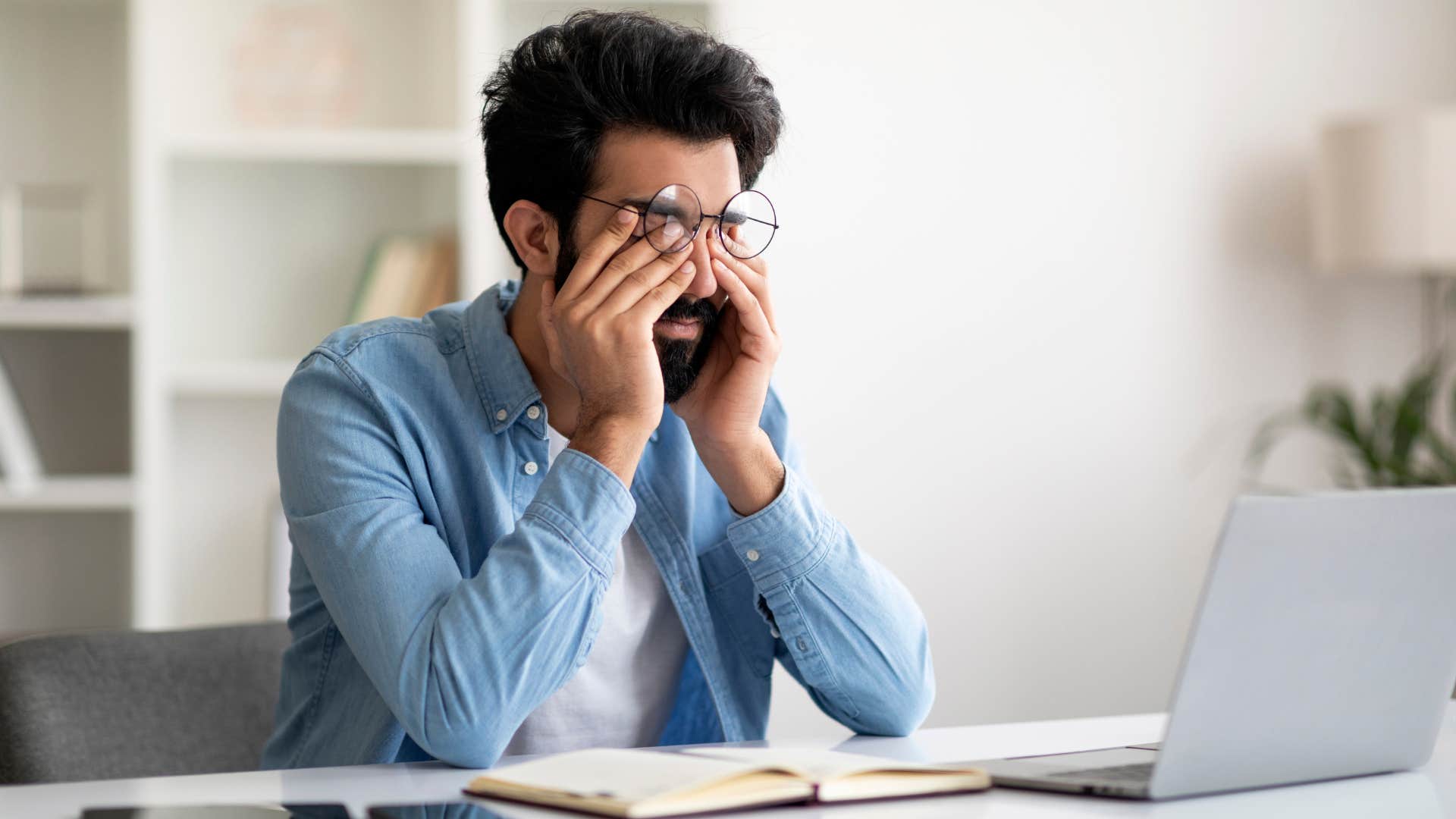 Prostock-studio / Shutterstock
Prostock-studio / Shutterstock
Studies show that fatigue is most strongly associated with perceived stress, and people experiencing chronic forms of fatigue report significantly more stress compared to healthy individuals. Stress is another common cause of chronic fatigue. Feeling stressed is exhausting; it has a myriad of symptoms, including those that affect your physical condition and ability to sleep.
If you are stressed all the time, then it’s important to take action to manage your stress or seek help from a professional healthcare provider, such as a counselor or therapist, to discuss your stress and apply coping mechanisms for it. Although stress is a part of life, it should never interfere with your day-to-day activities.
5. You might have a viral or bacterial infection
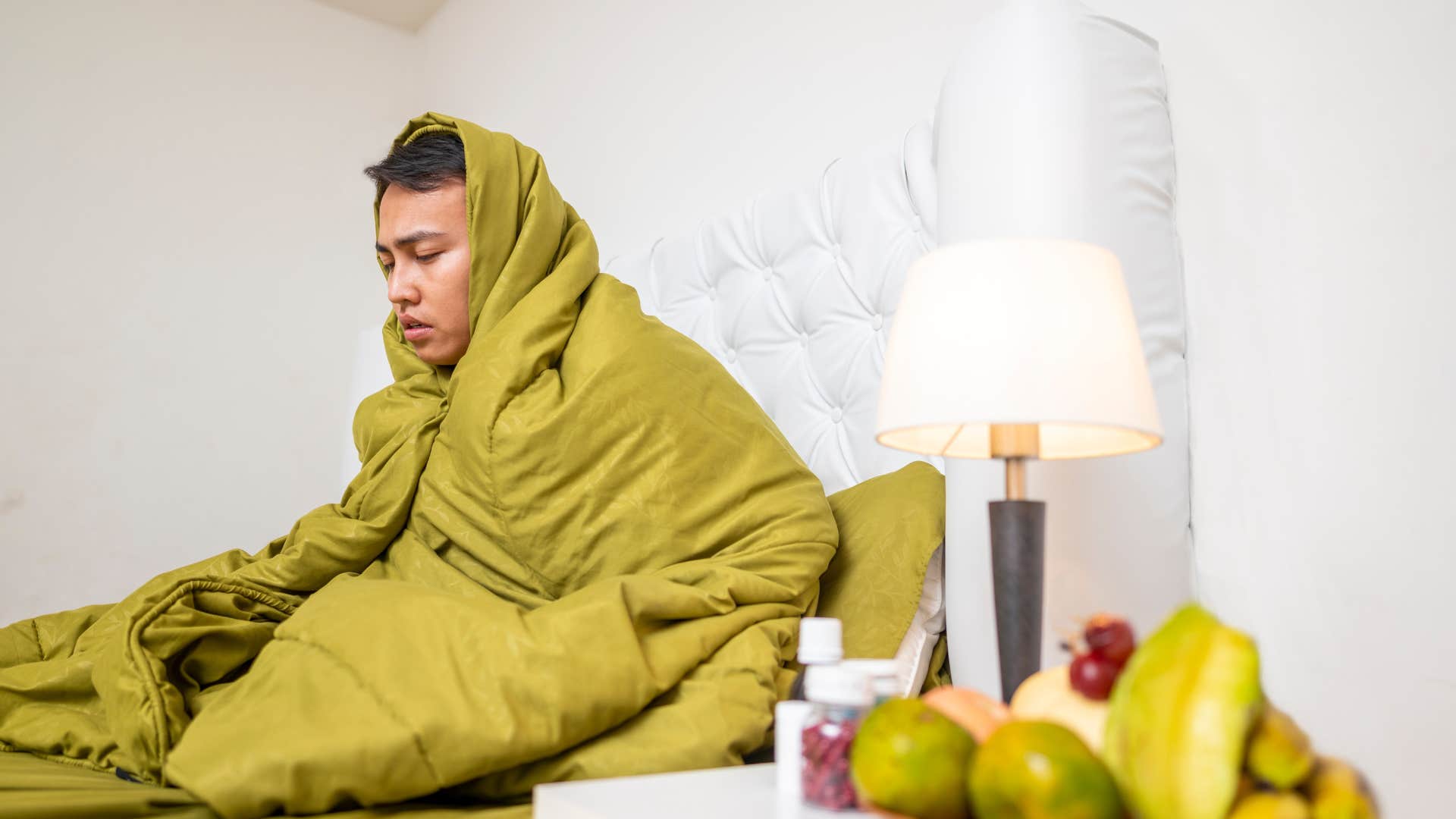 leolintang / Shutterstock
leolintang / Shutterstock
Contracting the flu or a cold is never fun, but it’s especially problematic when your sickness interferes with your ability to function during the day. Whether you’re exhausted because you can’t get a full night’s sleep or because your body is spending so much time and energy fighting off the illness instead of keeping you awake, you’re bound to be tired.
During an infection, your body produces inflammatory chemicals that trigger neuroinflammation in brain tissue, which is responsible for the fatigue sensation and not the fever itself. A large population study found that infections with common pathogens are associated with a 50% increased risk of developing chronic fatigue.
However, chronic infections can be serious and have lasting effects that greatly impact your energy levels throughout the day. Chronic UTIs, strep throat, and mononucleosis (mono for short) can often become chronic. Contact your doctor to find the best treatment plan to either eliminate the infection or control symptoms.
6. You might be depressed
 ViDI Studio / Shutterstock
ViDI Studio / Shutterstock
Depression is more than just feeling sad. In fact, depression has a bunch of symptoms related to your mood, memory, and physical condition. Sleep disturbances are a big sign of depression (and many other things), so pay attention to your sleeping habits and note your energy levels throughout the day to enable a mental health professional to better diagnose you with depression, if you suspect that’s what you have.
If you’re so tired that even the smallest task of putting on your shoes or making your bed seems impossible and overwhelming, consider your emotional state. Even if you don’t have clinical depression, your emotions play a huge role in your daytime sleepiness.
7. You might have medication side effects
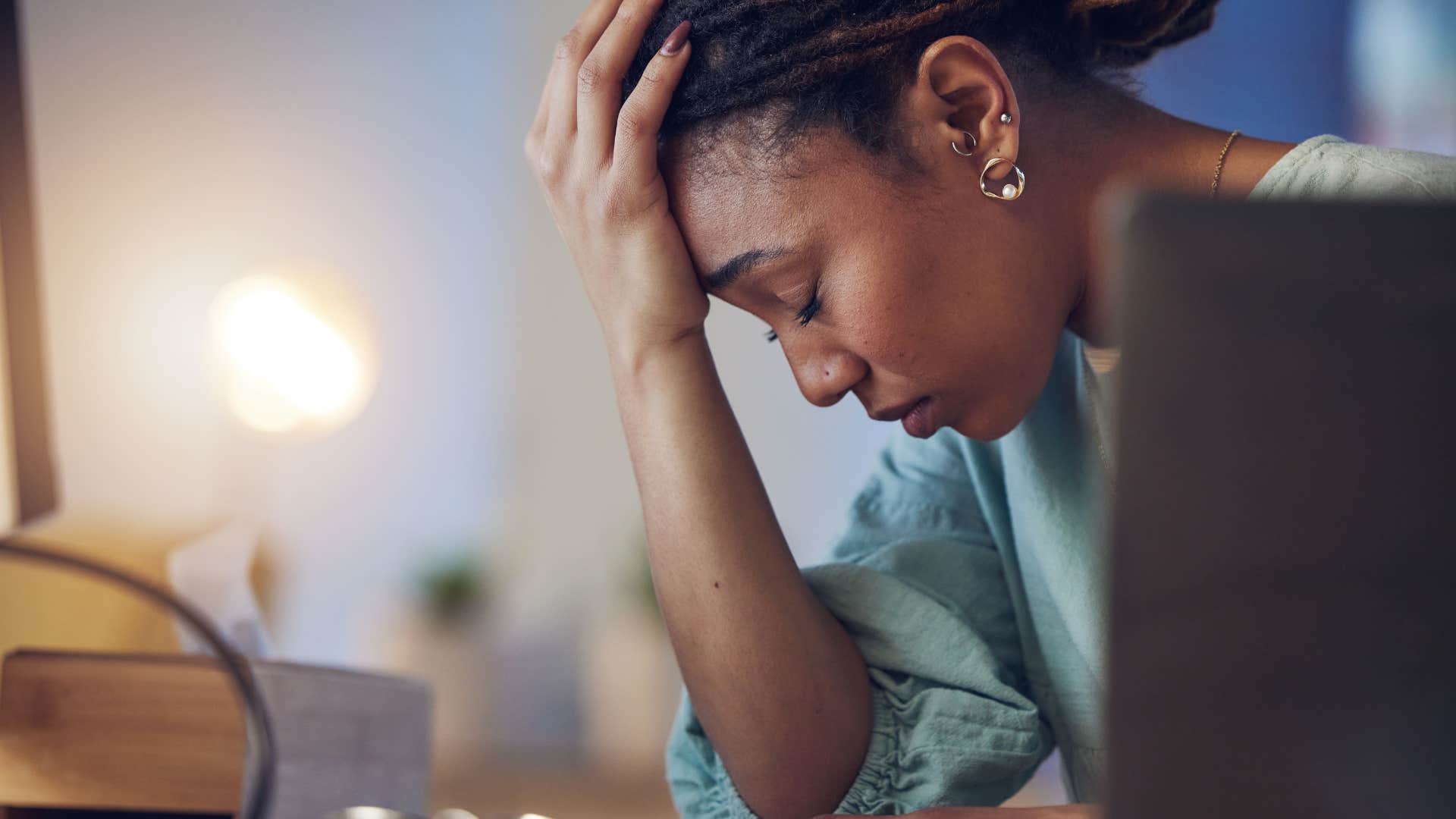 PeopleImages / Shutterstock
PeopleImages / Shutterstock
While these are meant to heal you, they can have nasty side effects. Antihistamines meant to regulate allergies, blood pressure medications, and so many other types of medications have the unfortunate effect of inducing sleepiness and fatigue. To counteract this, your physician may prescribe you additional medication or advise you to change medications in favor of another kind in hopes that your body will respond differently to a new medication.
One study found that approximately 80% of people using prescription sleep medications also report residual effects like feeling drowsy, groggy, or sluggish the next day, along with difficulty concentrating. Of course, some medications are designed to help you sleep and will produce fatigue, so you may always try natural melatonin pills or other sleep aids as well.
8. You might have a chronic health condition
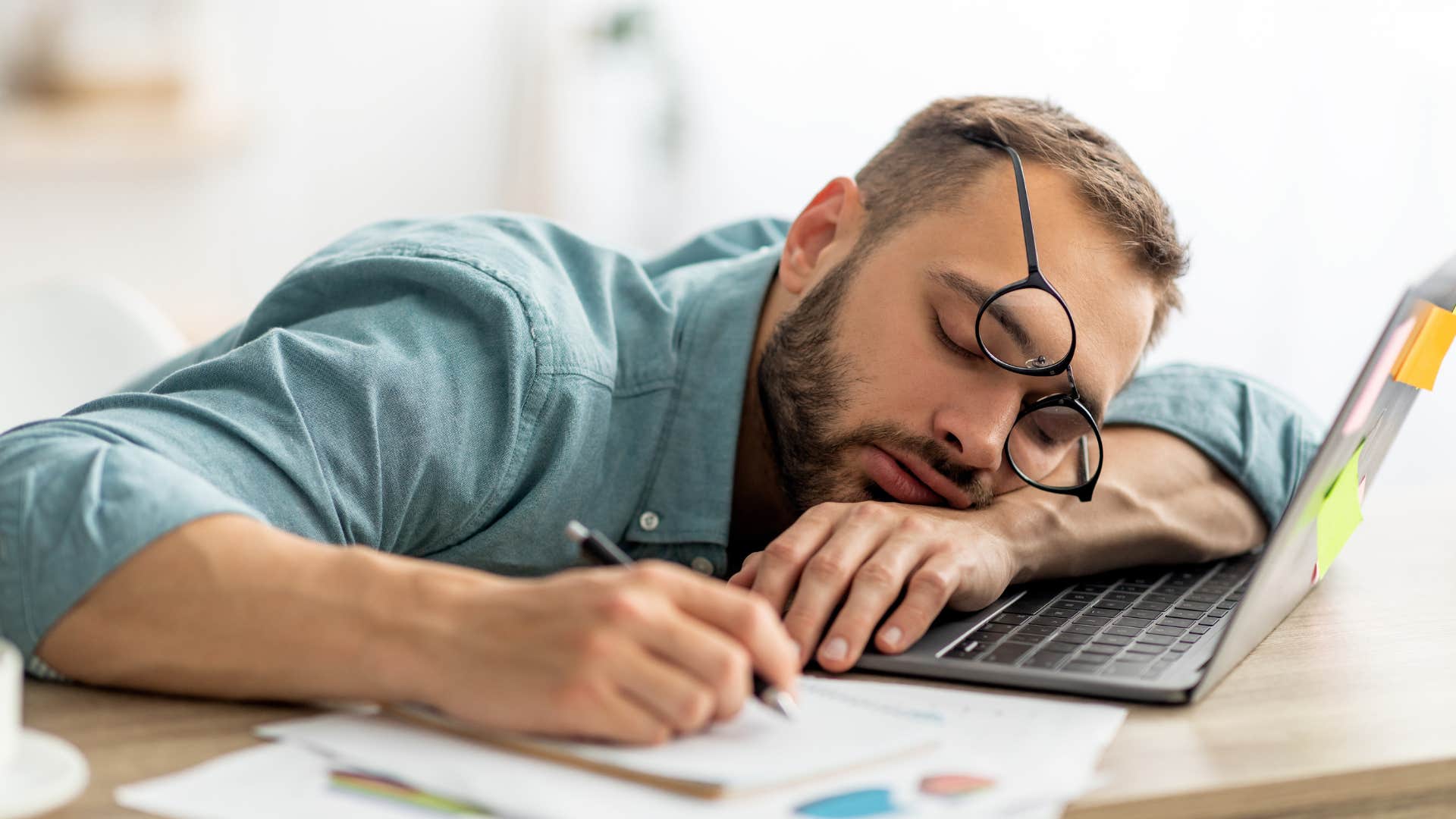 Prostock-studio / Shutterstock
Prostock-studio / Shutterstock
Research shows that people with chronic health conditions are significantly more likely to experience severe fatigue compared to those without (23% versus 15%). From Chronic Fatigue Syndrome (CFS) to fibromyalgia, there’s no shortage of health conditions that can drain you of your energy.
If you’re constantly tired and are experiencing other concerning symptoms, talk to your doctor about the possibility of you having a more serious health condition. While it may not be the most likely cause of your chronic fatigue, it’s good to check up on your body.
Meaghan Summers is a writer who covers astrology, pop culture, and relationship topics.

